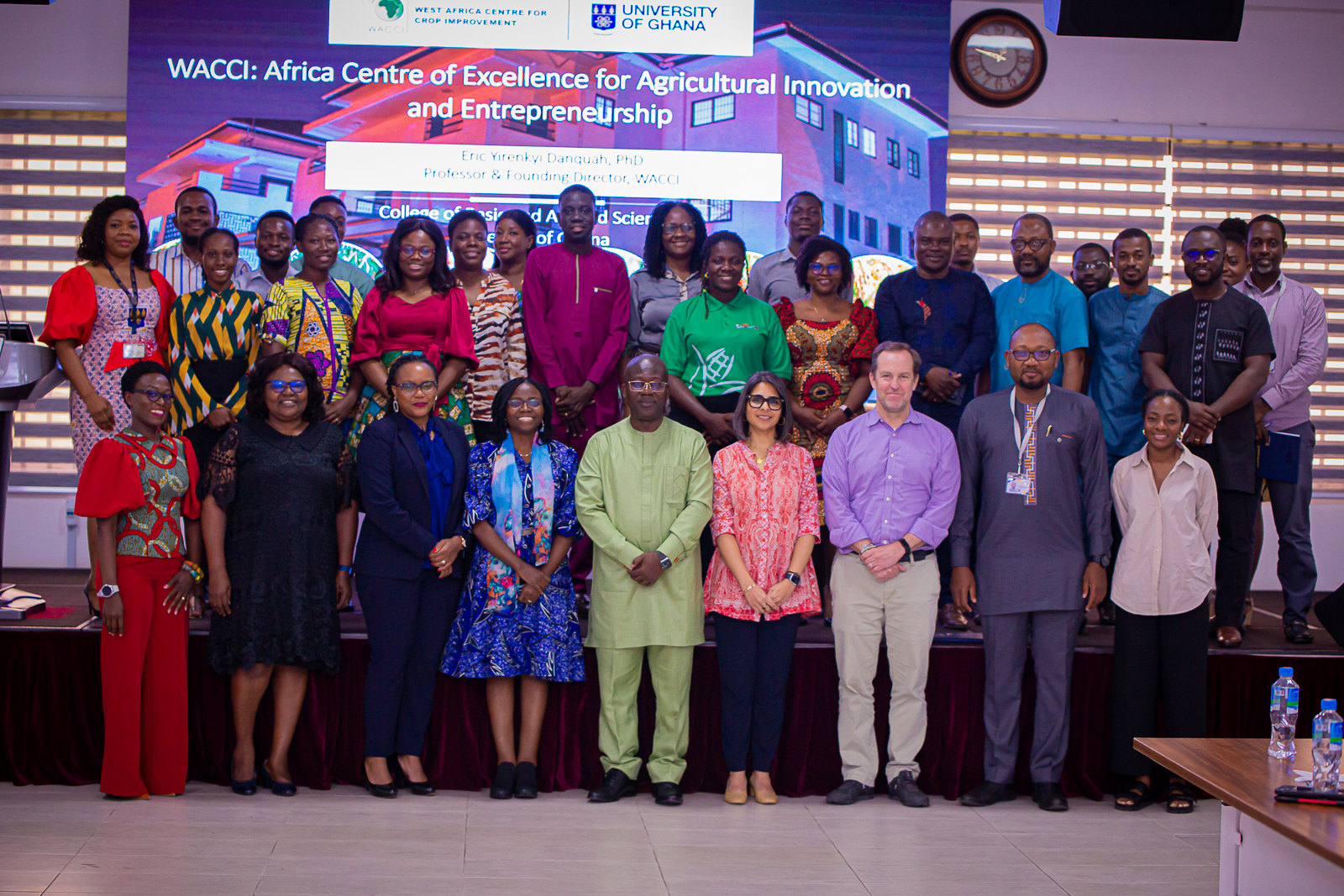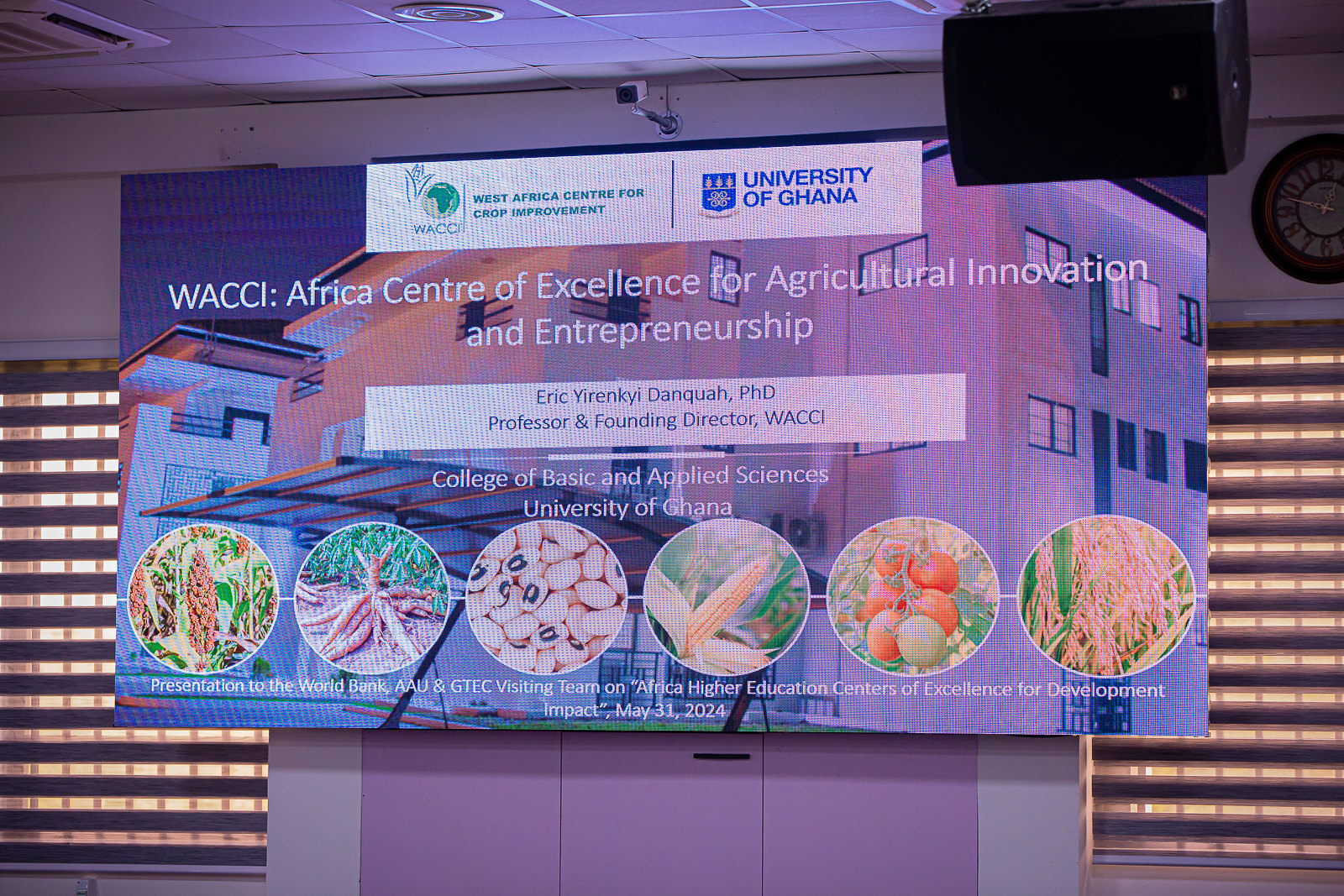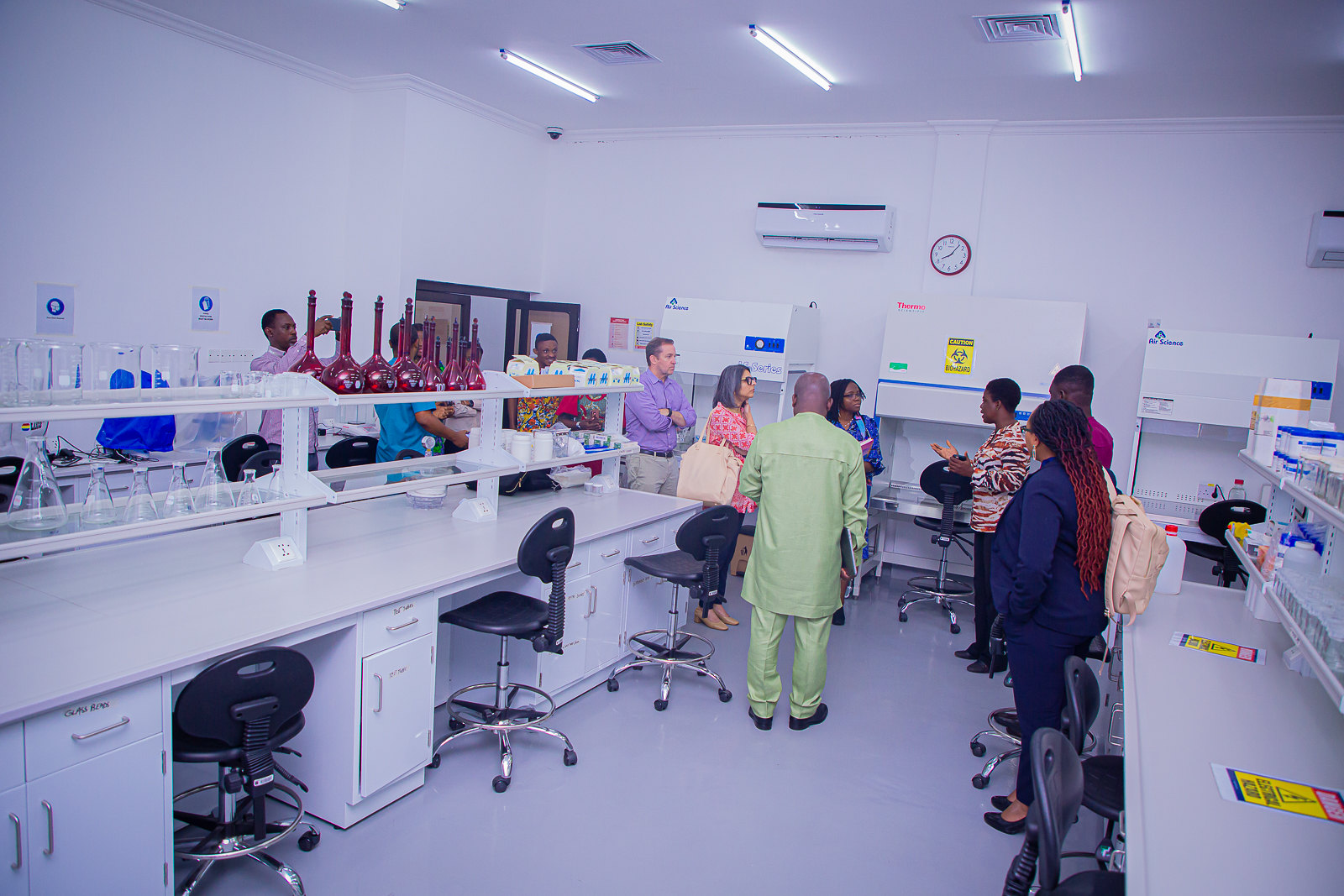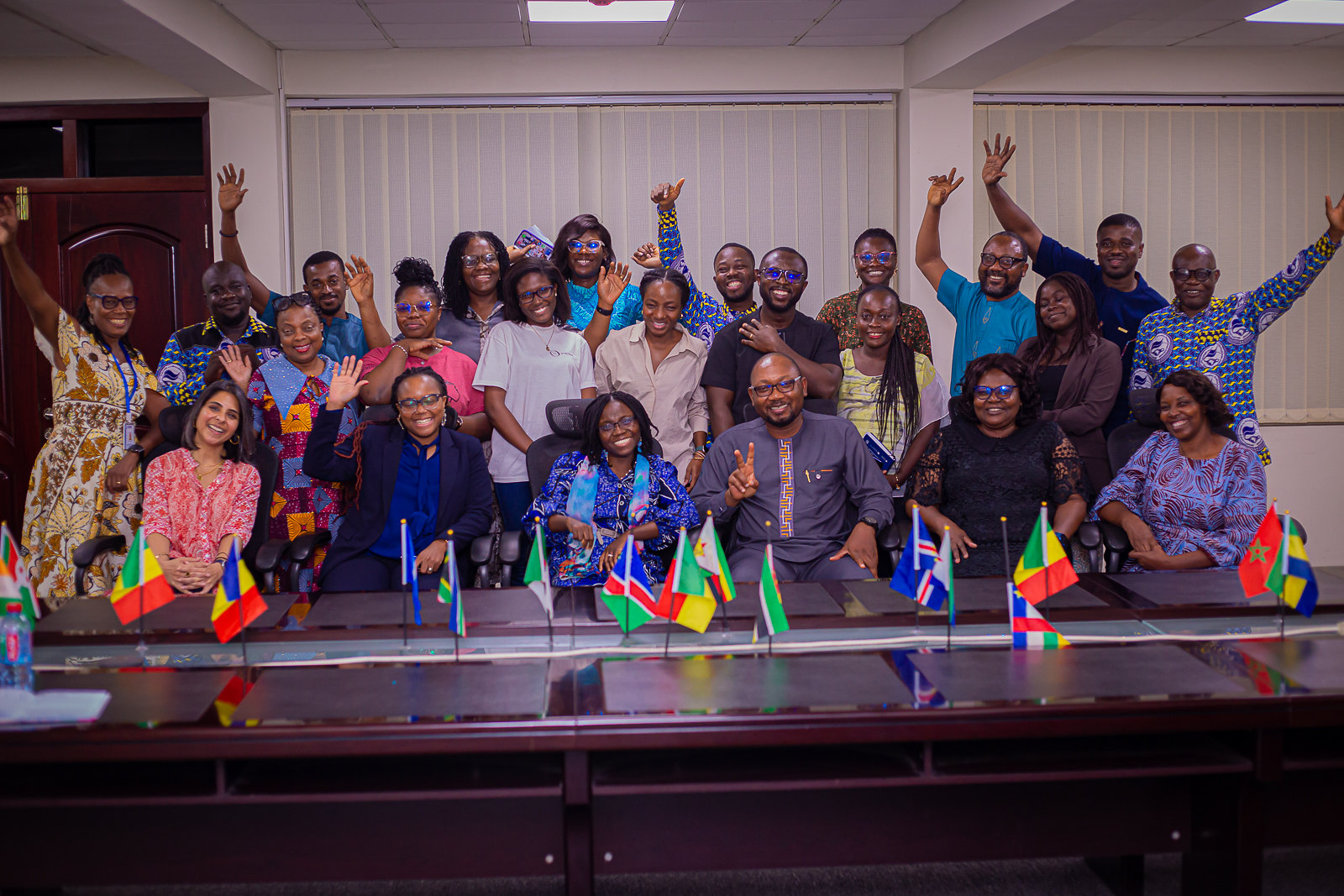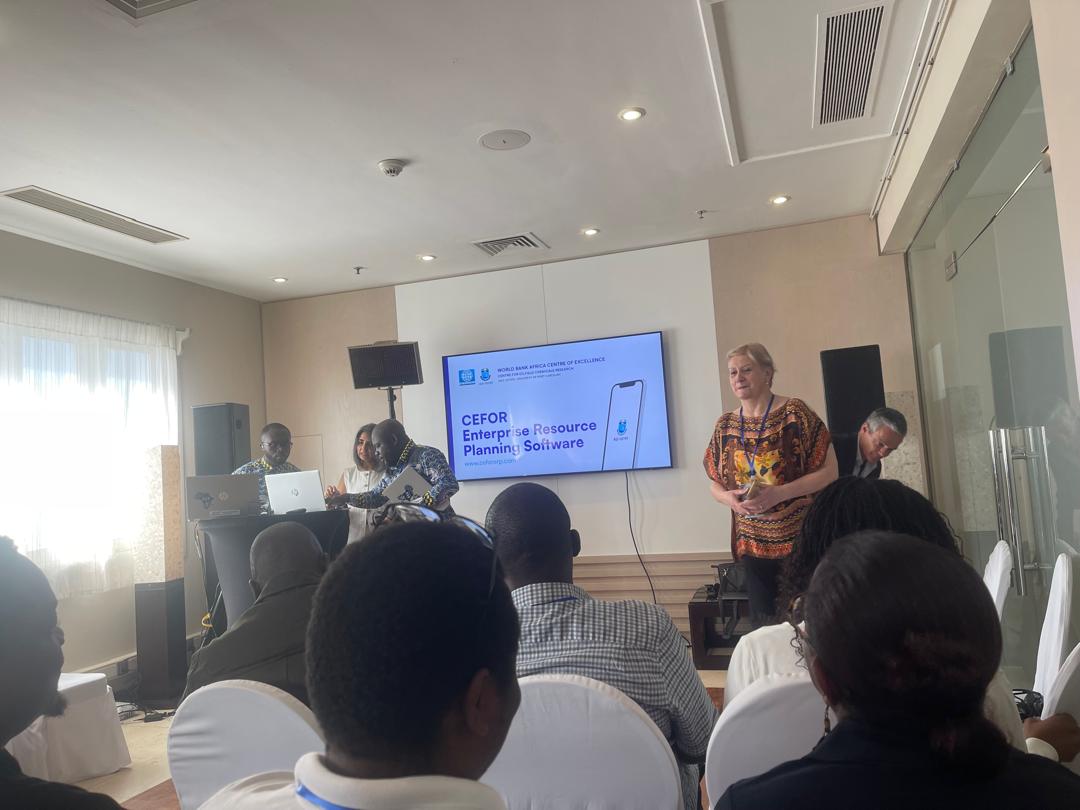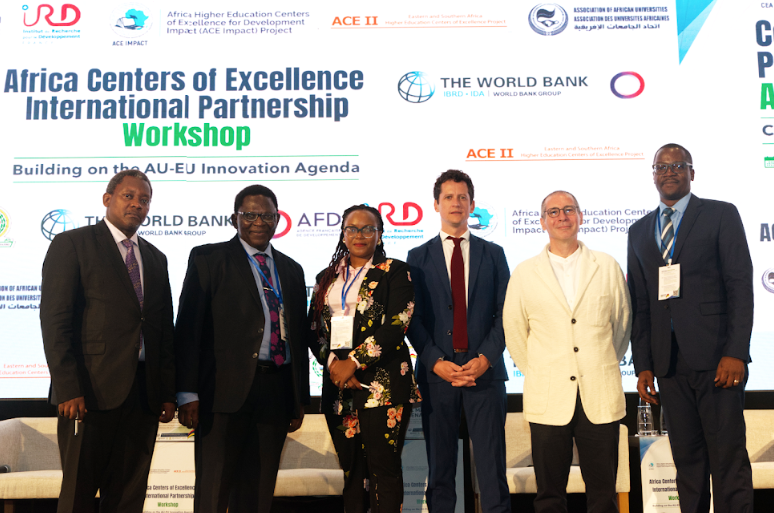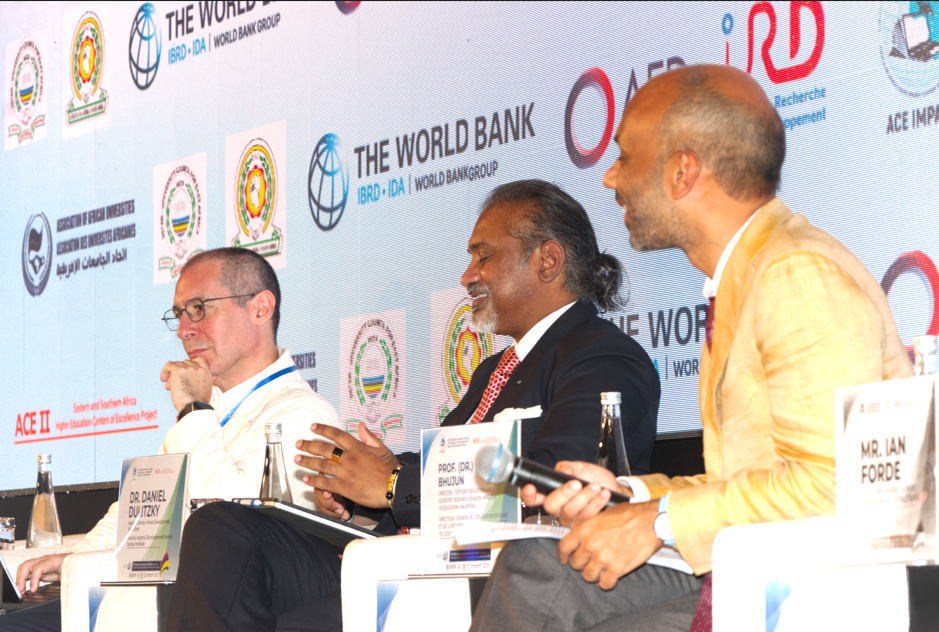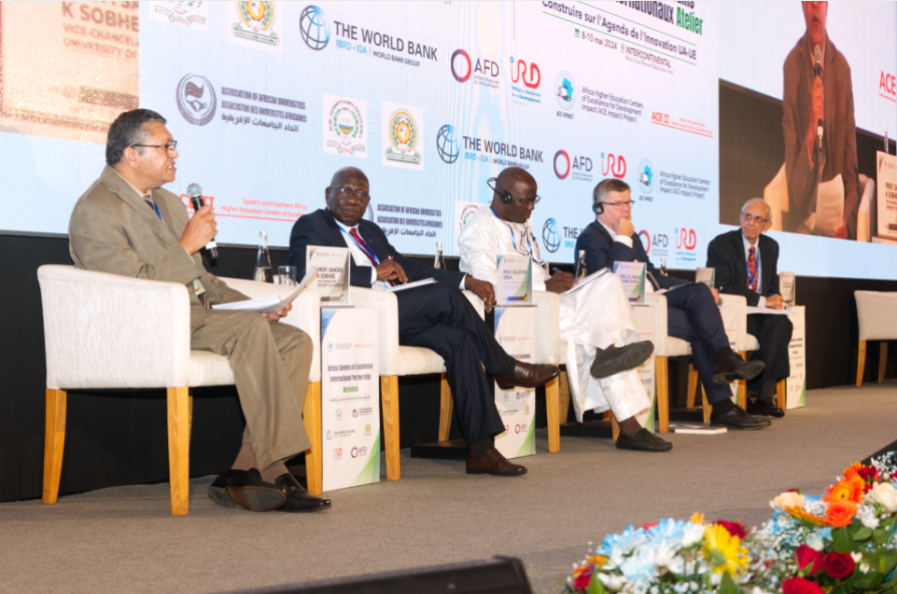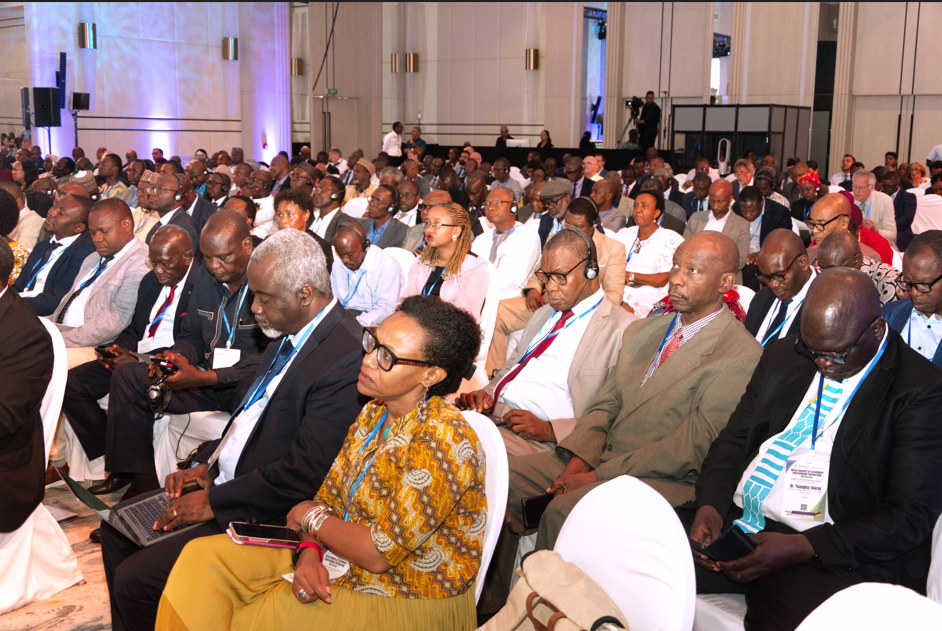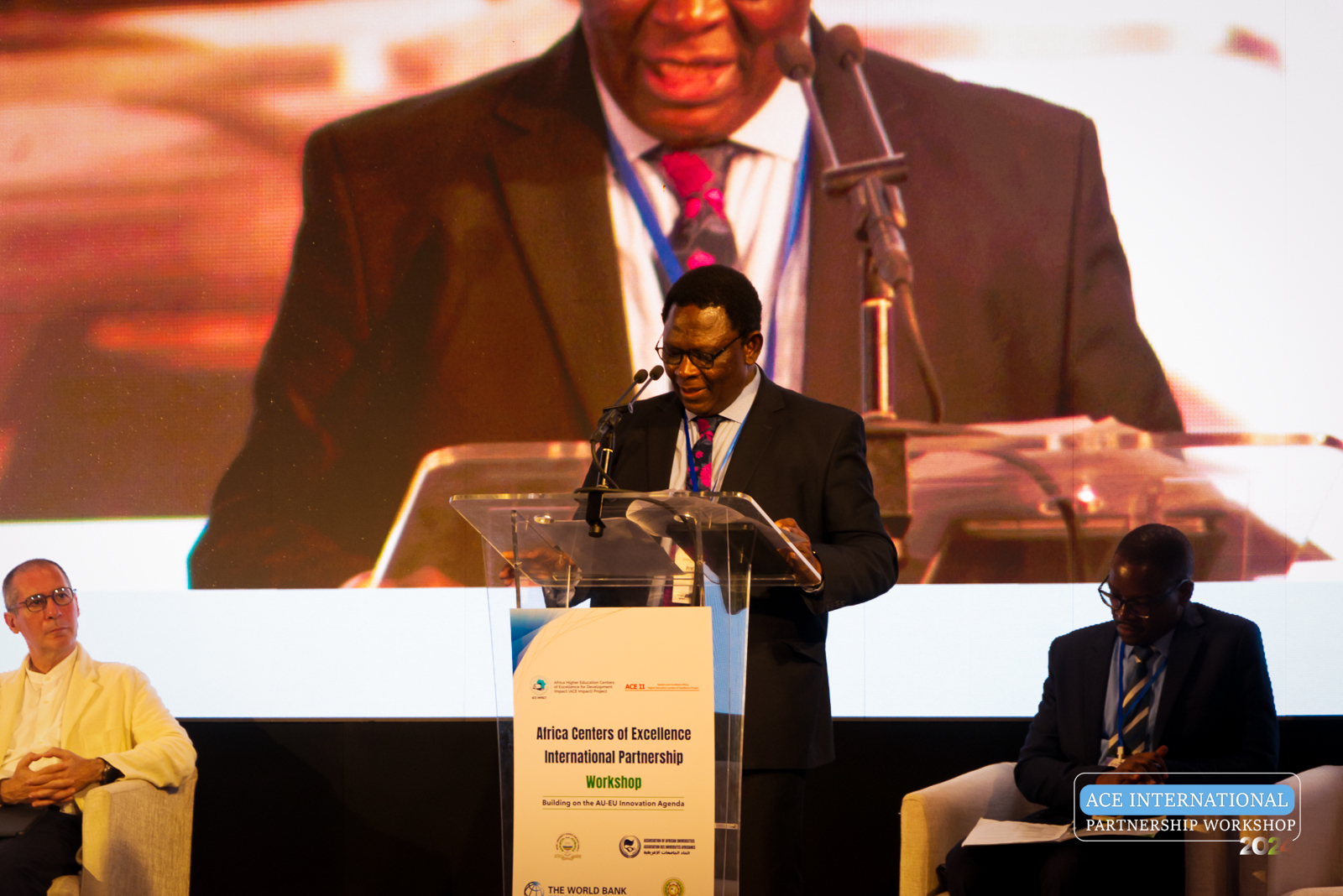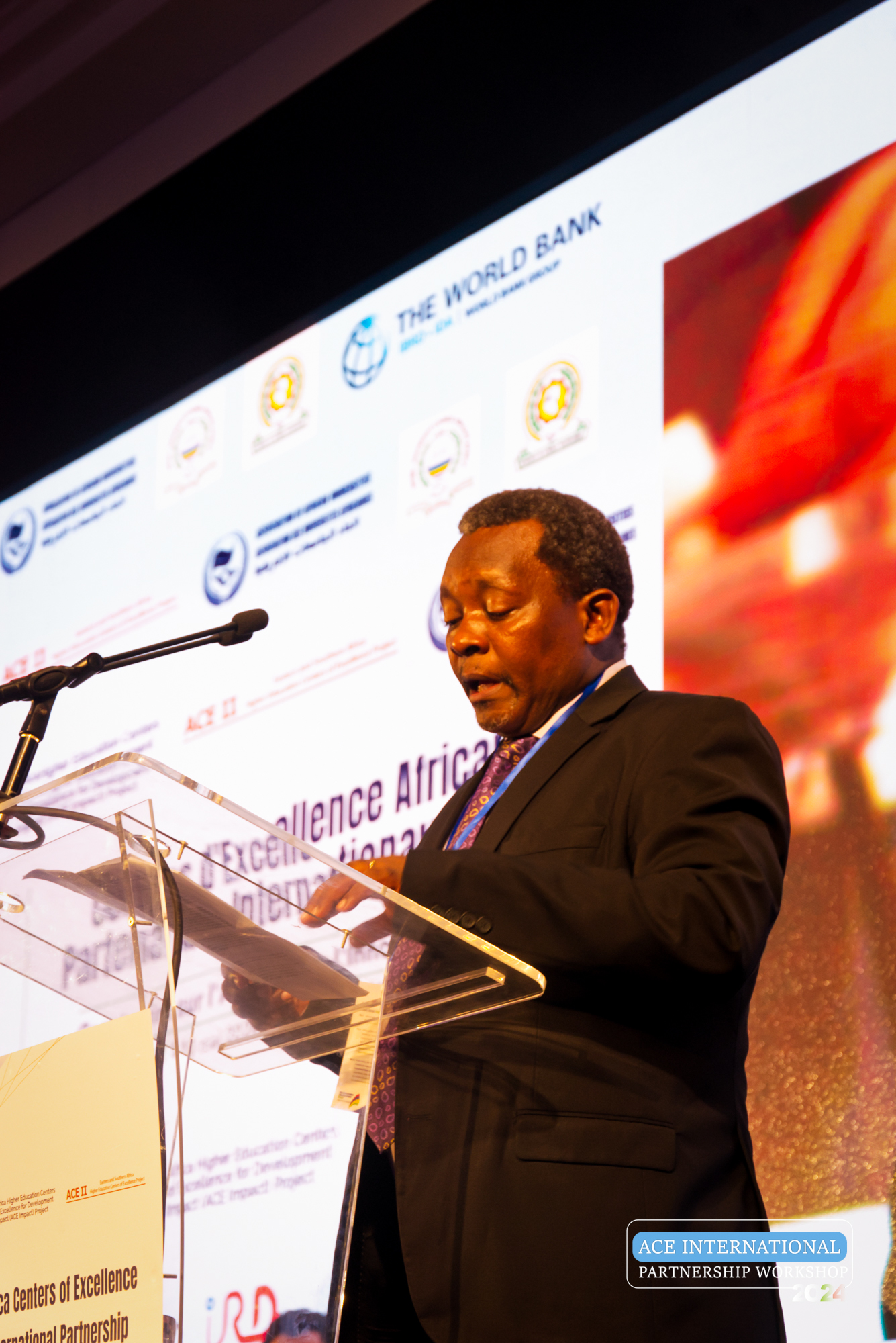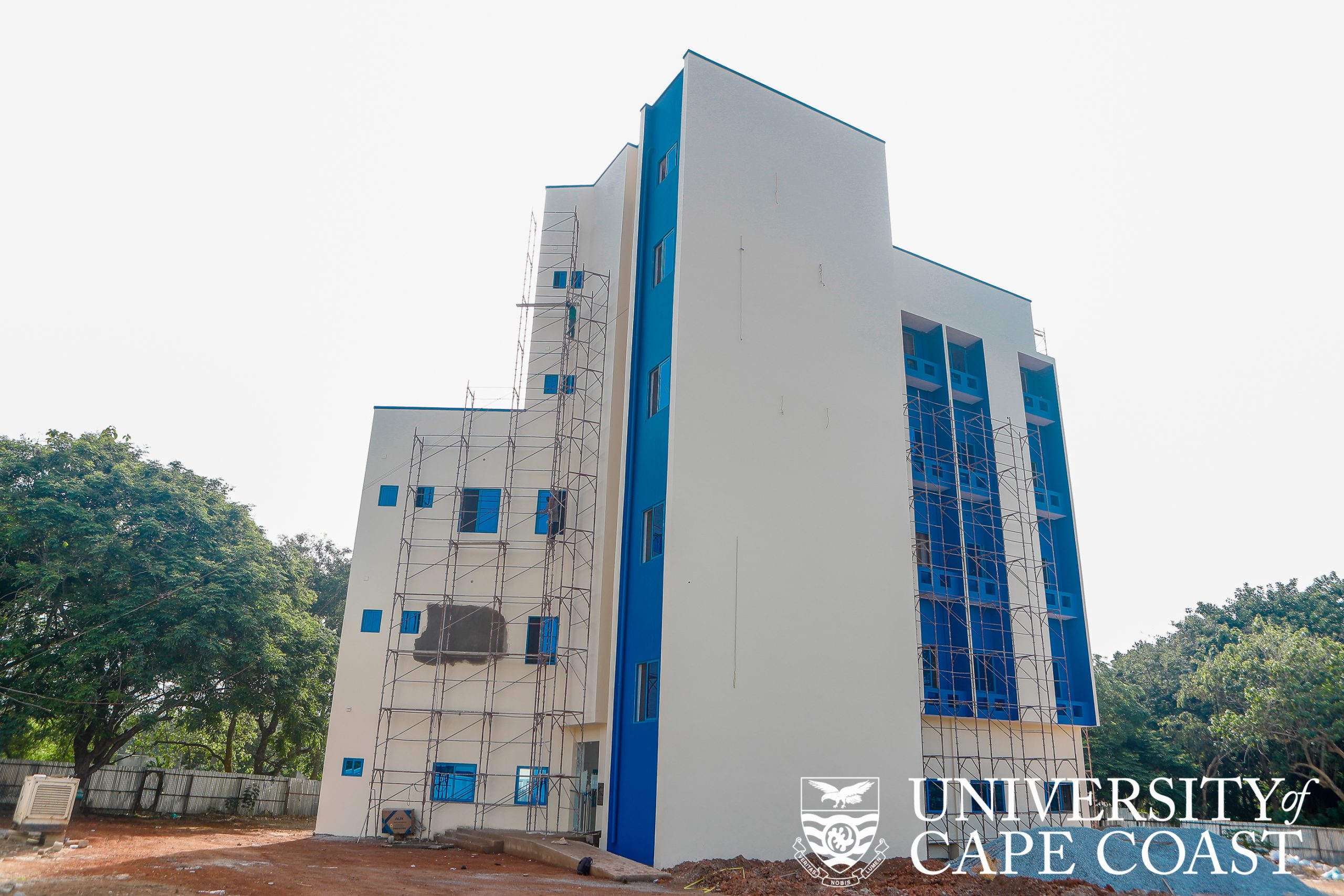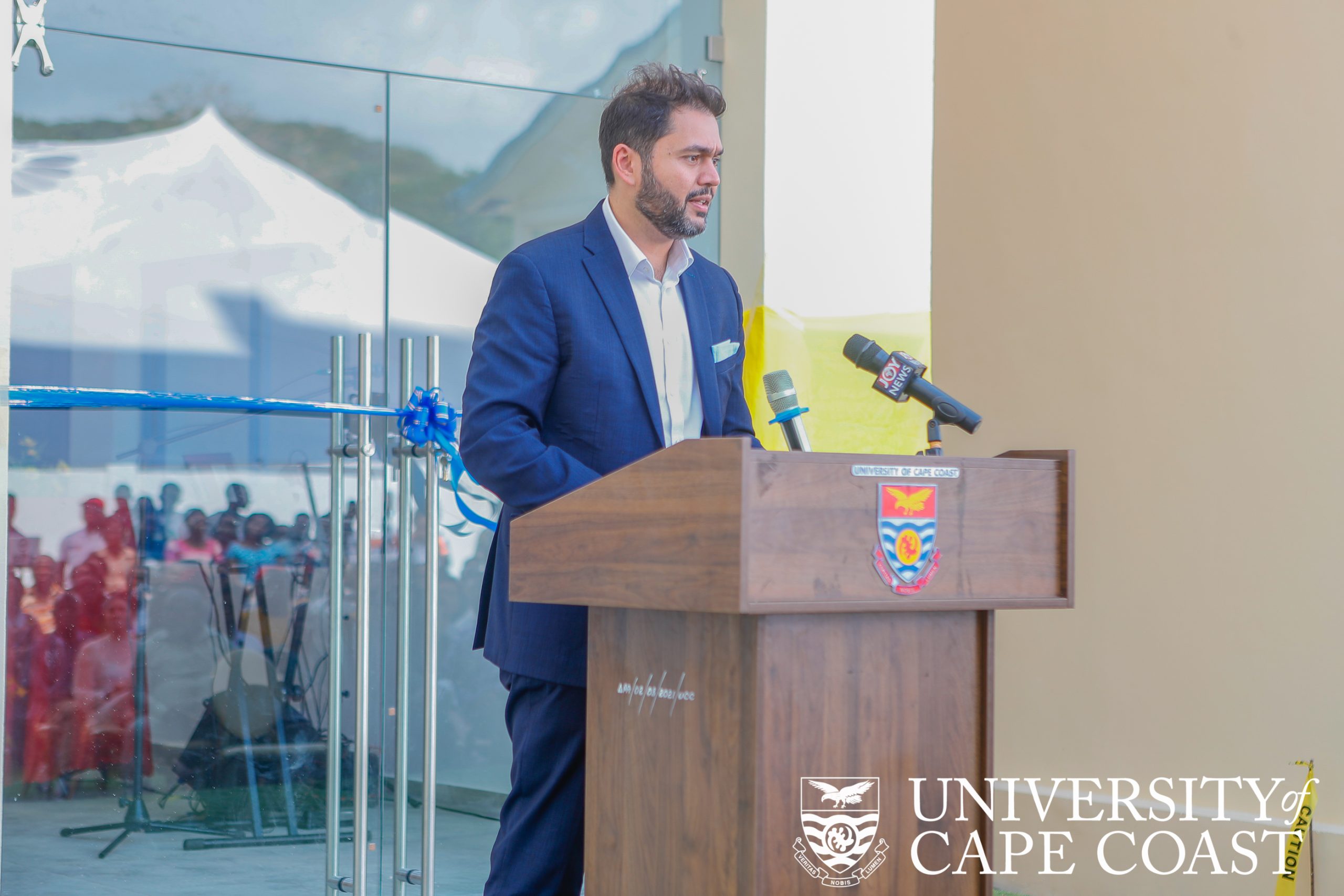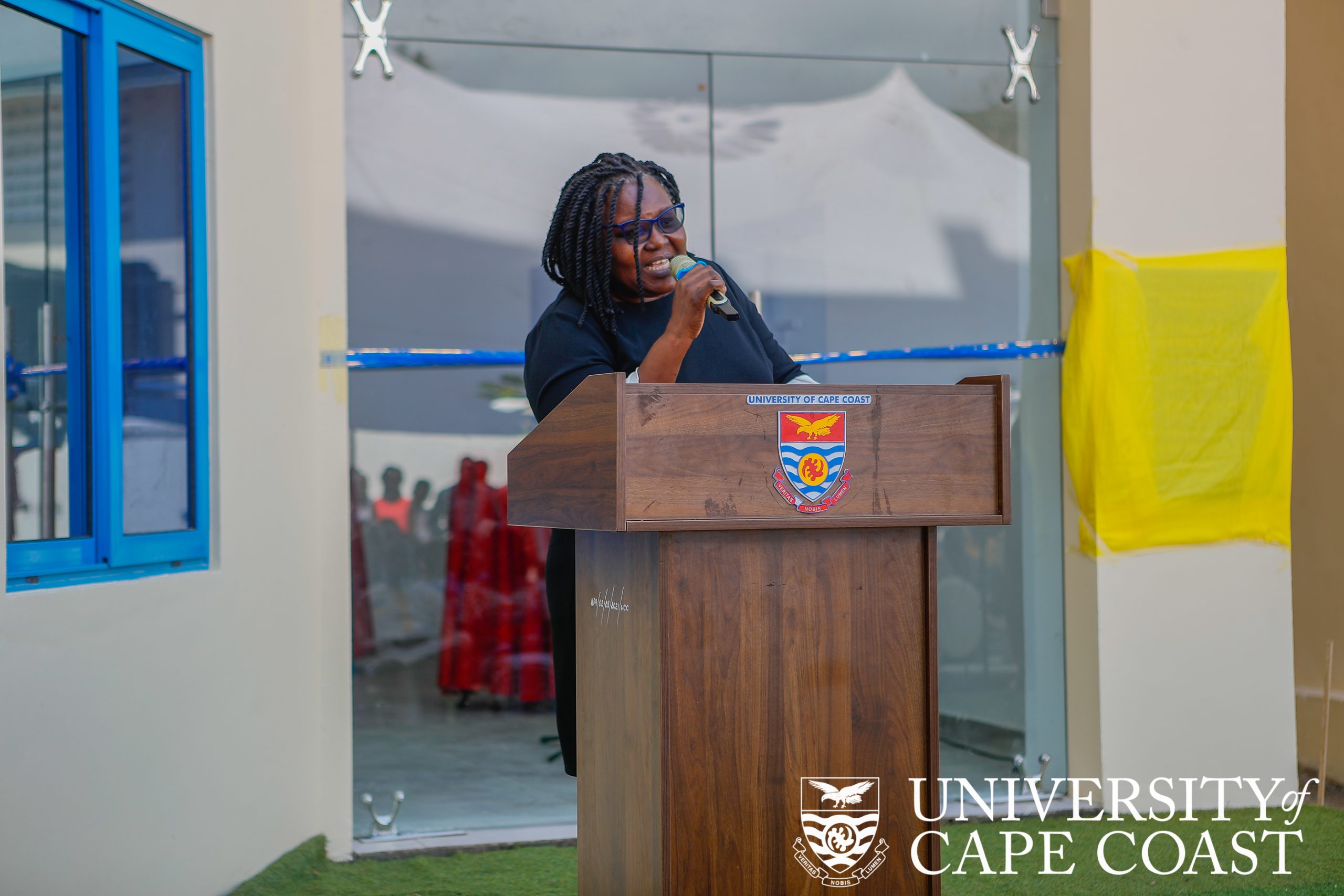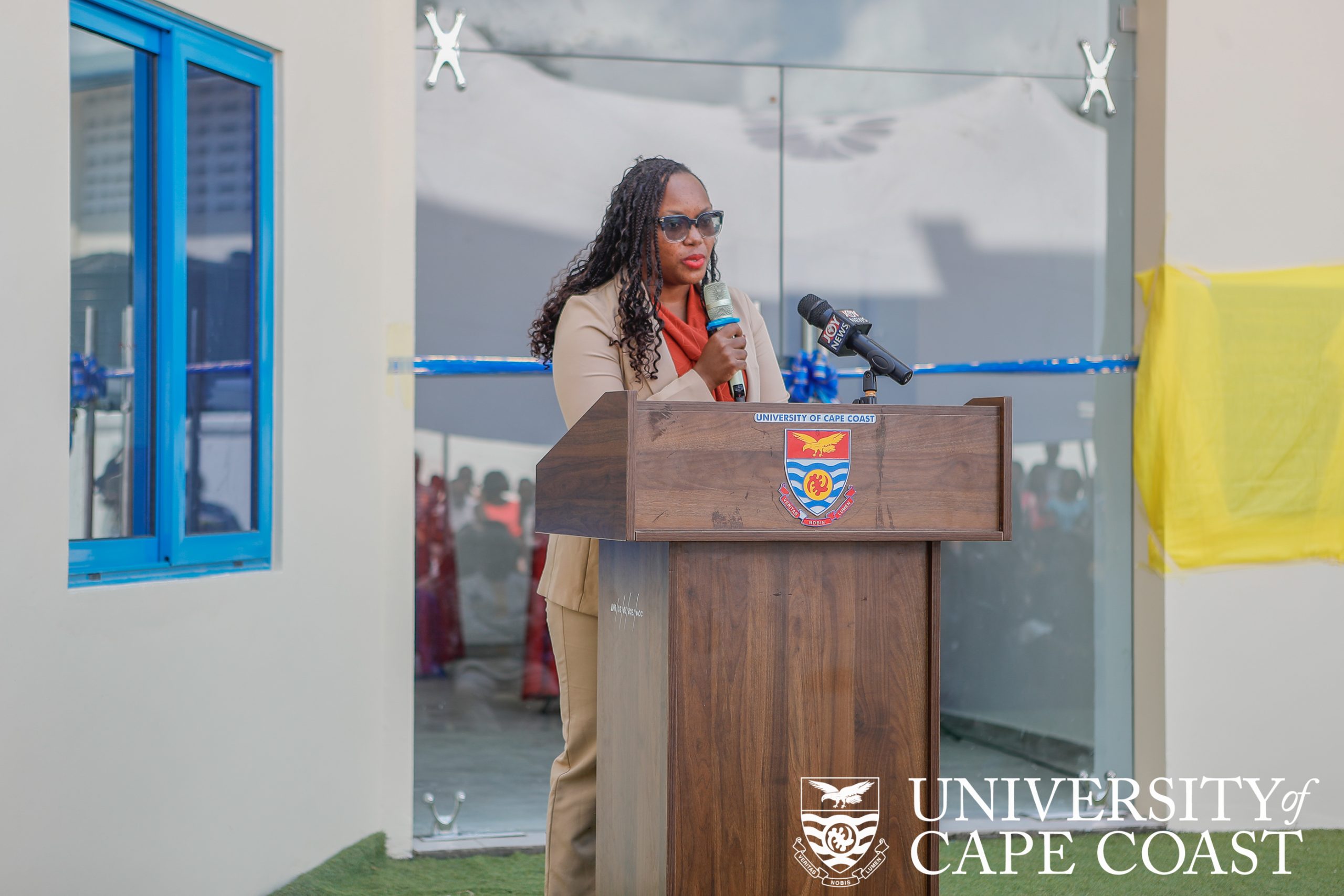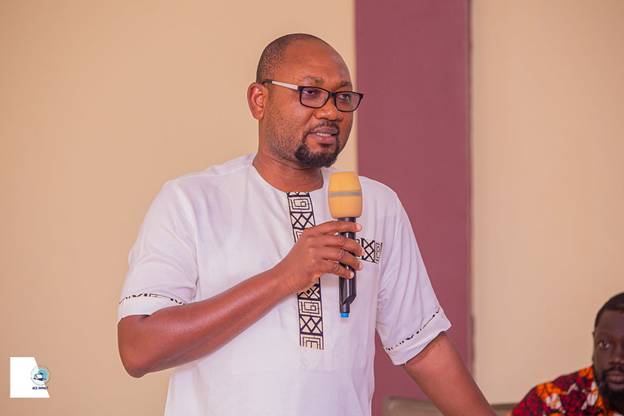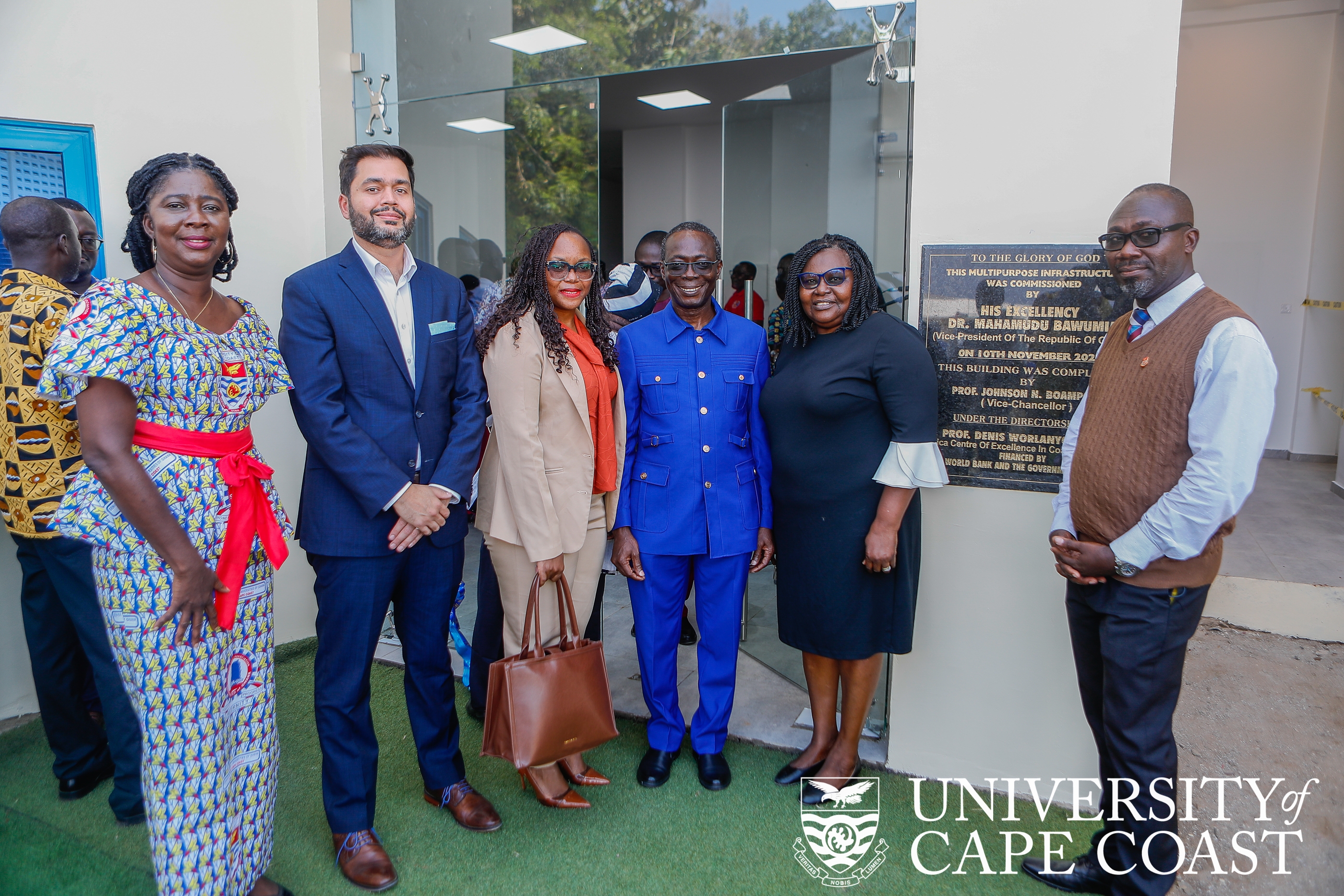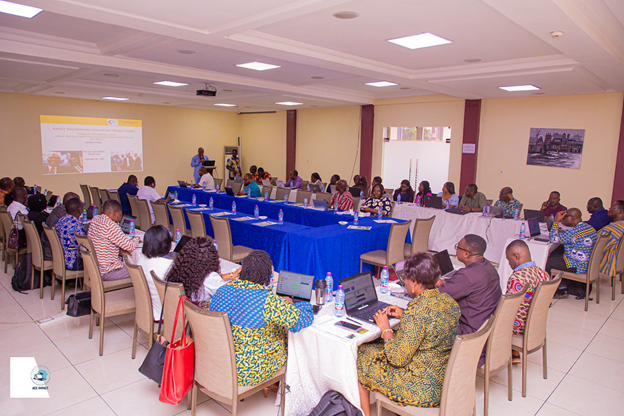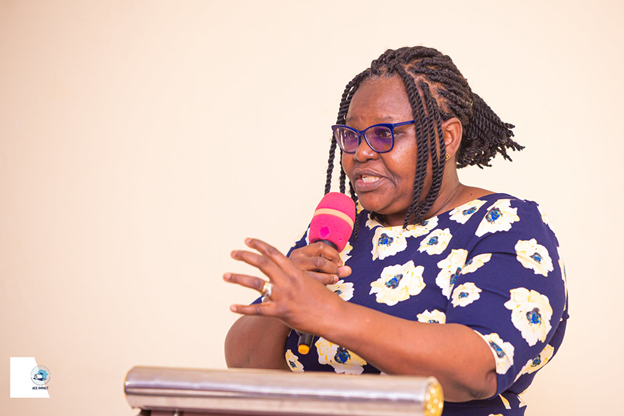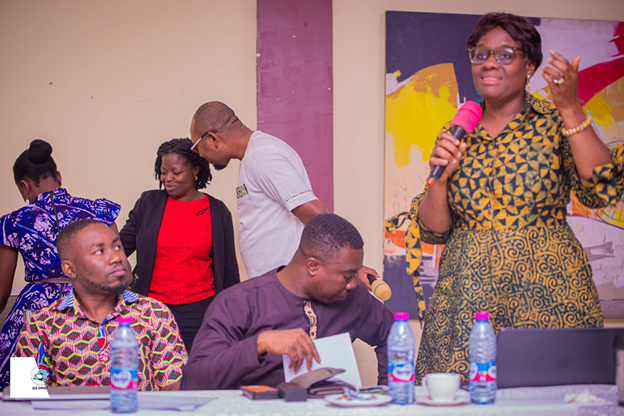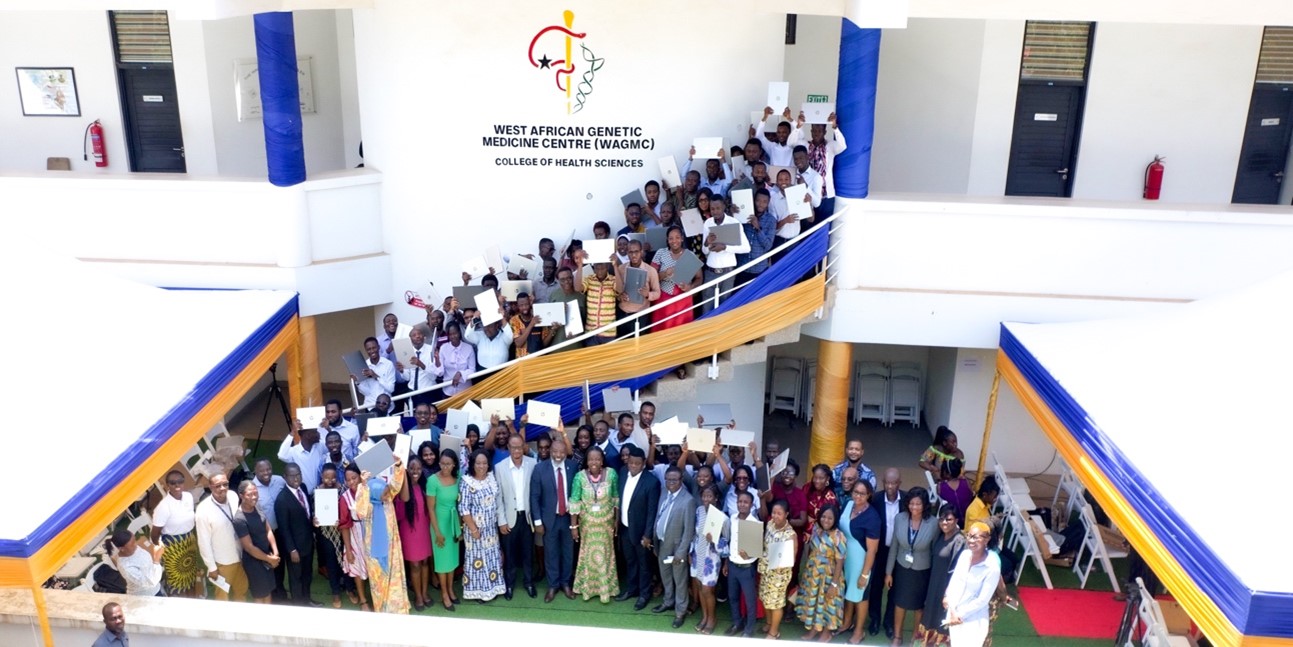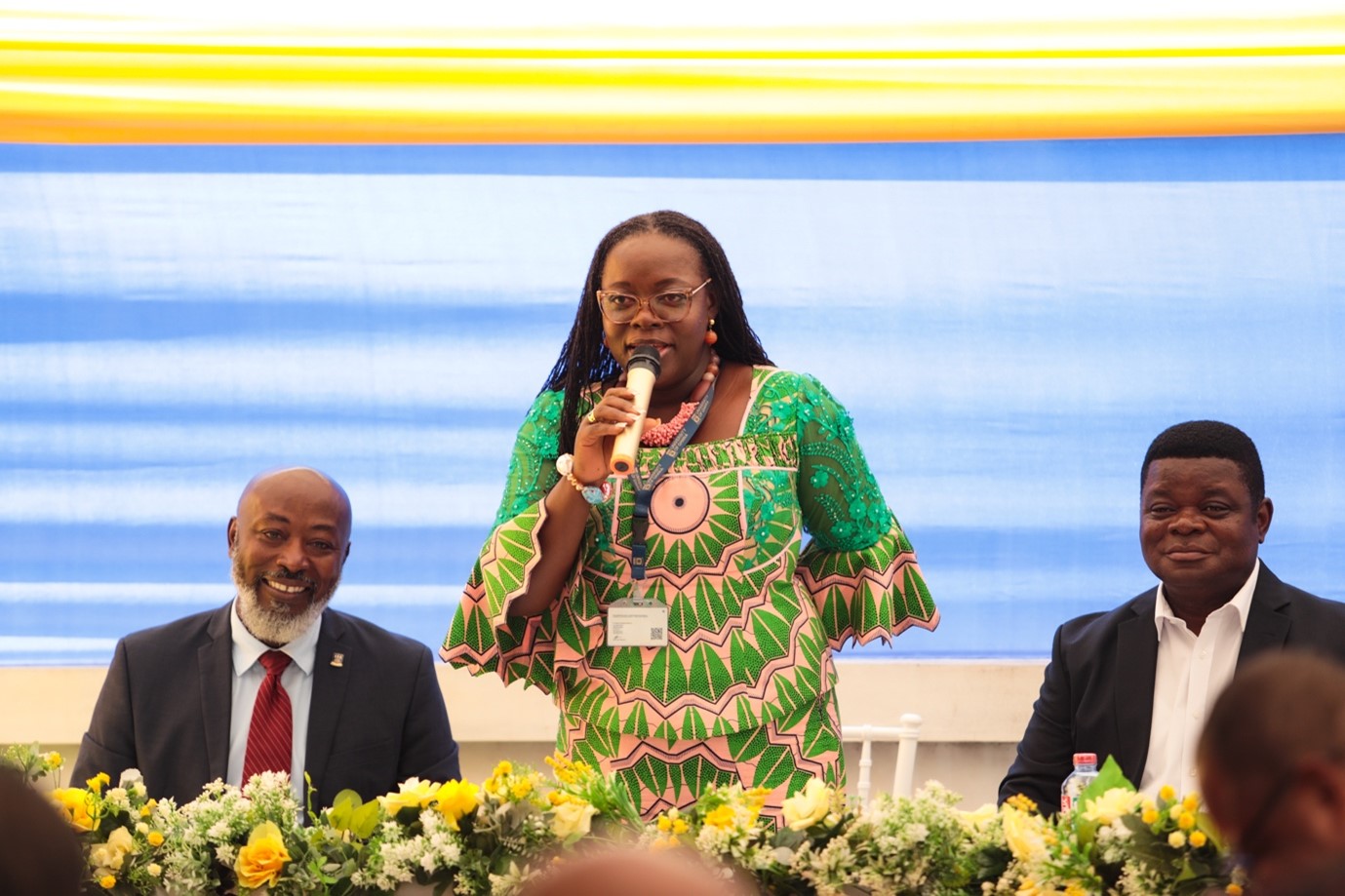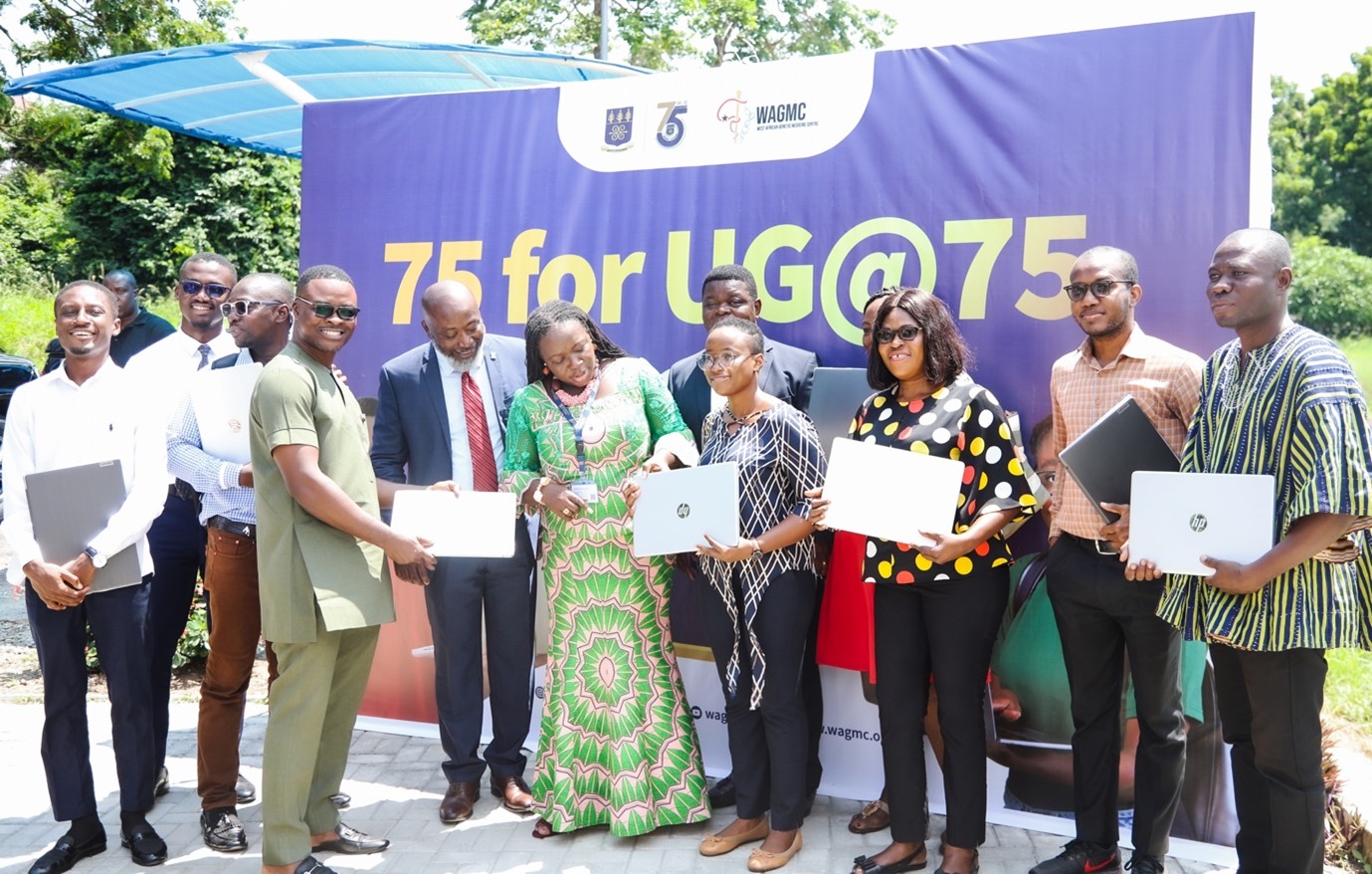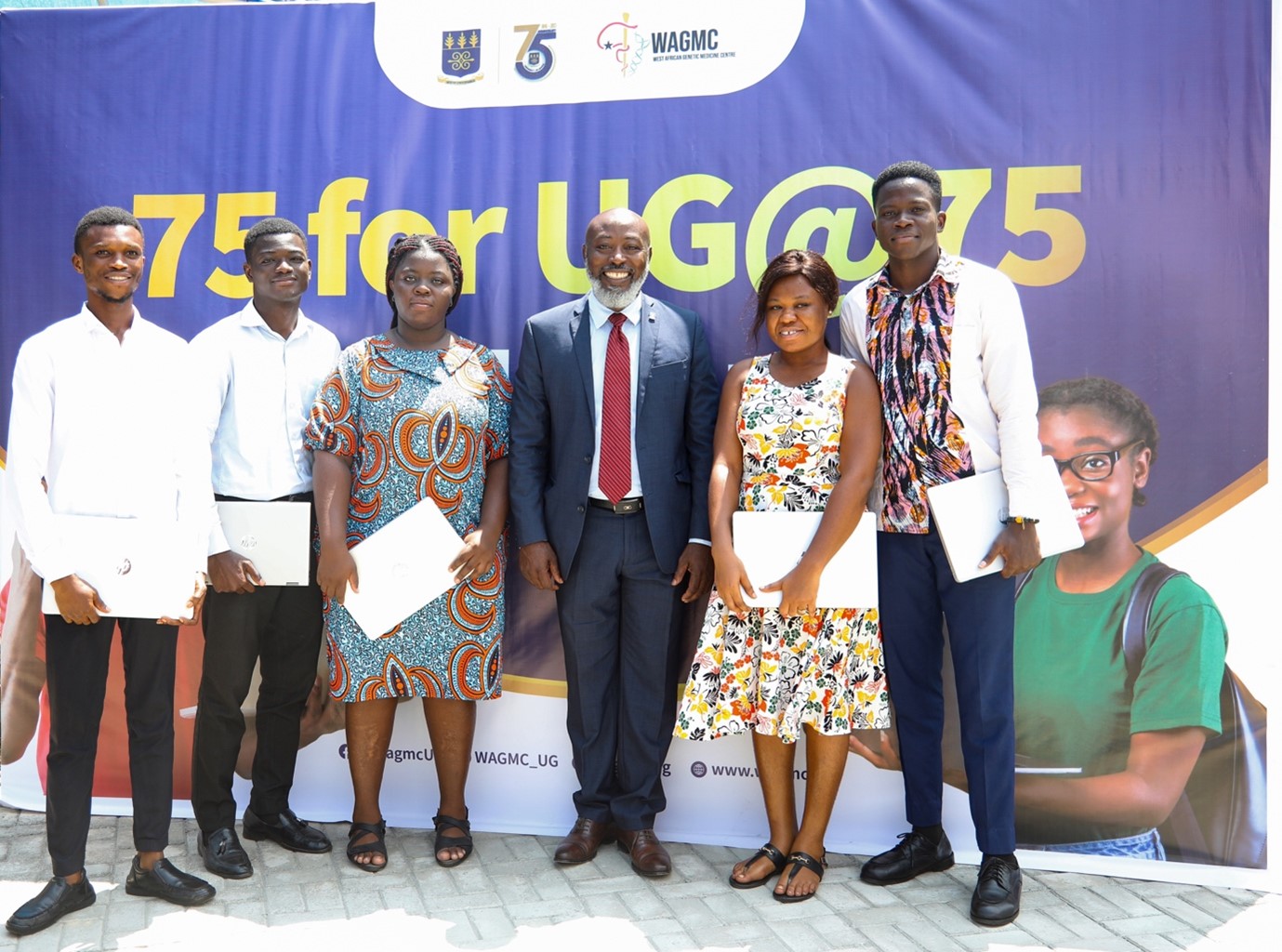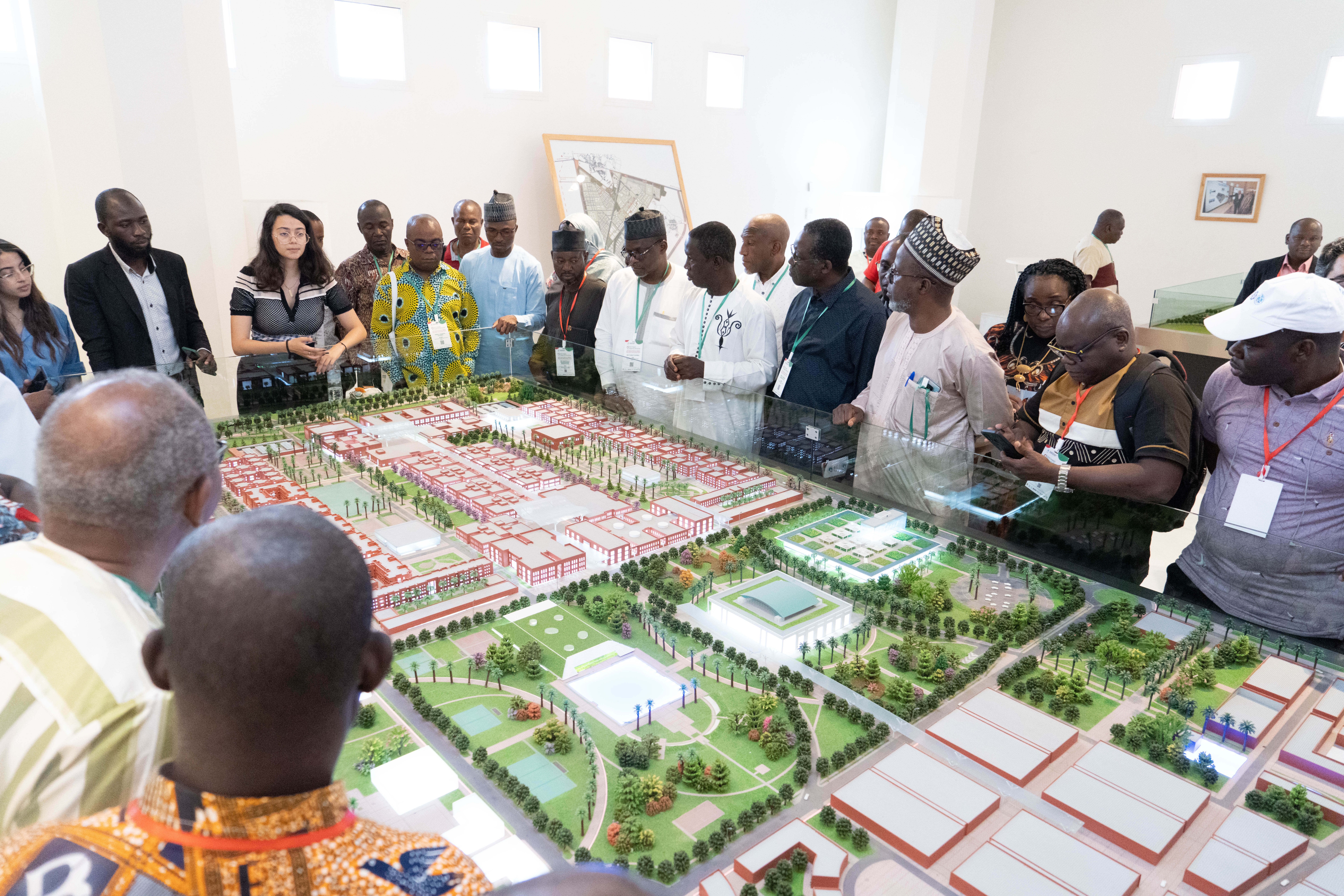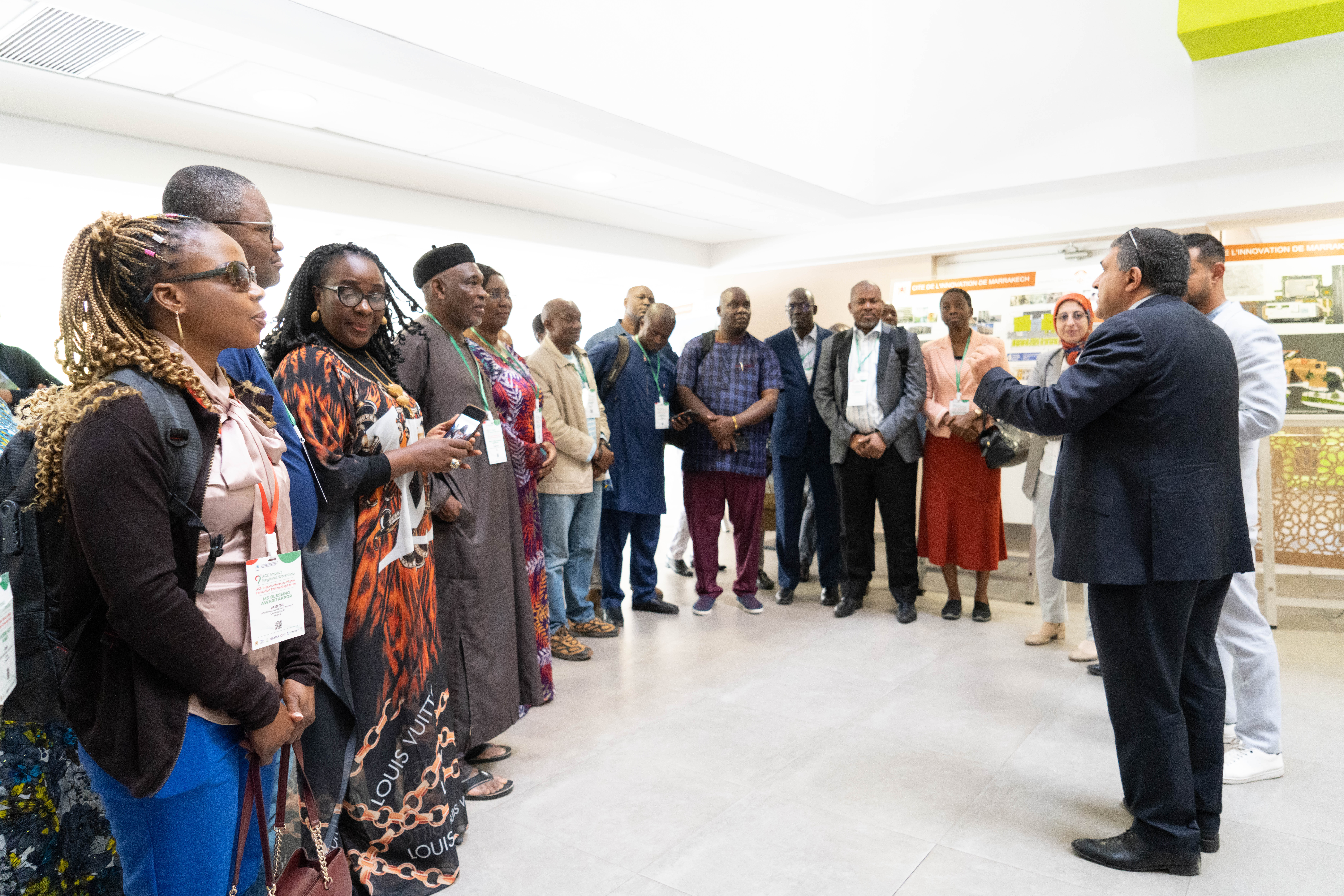Towards Africa’s Future: How University of Ghana ACE Impact Centres are Leading the Way
Background
The Africa Centers of Excellence for Development Impact (ACE-Impact) project was launched five years ago by the World Bank and French Development Agency to increase the impact of existing ACEs under the first phase of the ACE initiative, that is, the ACE I project, and extend the initiative to more centers. Thus, the project has since 2019 been supporting 54 centers in 35 universities across eleven countries Benin, Burkina Faso, Cote d’Ivoire, Djibouti, Gambia, Ghana, Guinea, Niger, Nigeria, Senegal, and Togo—to improve and accelerate the quality, quantity, and development impact of postgraduate education in five main areas, STEM, agriculture, health, environment, applied social science, and education.
Ghana hosts nine such centers: three each at the University of Ghana, Legon, in Accra and the Kwame Nkrumah University of Science and Technology in Kumasi, and one each at the University of Cape Coast in Cape Coast, the University of Energy and Natural Resources in Sunyani, and the University for Development Studies in Tamale.

These ACE-Impact centers, globally recognized for their unique focus on postgraduate education and research in STEM, agriculture, health, and environment, continue leading the way in Africa’s transformative, sustainable impact. This article shines a light on the forward-thinking initiatives and exceptional accomplishments of the University of Ghana’s ACE centers—the West African Center for Crop Improvement (WACCI), West African Center for Cell Biology of Infectious Pathogens (WACCBIP), and West Africa Genetic Medicine Center (WAGMC)—in driving agricultural innovation, scientific research, and genetic medicine in Africa. It emphasizes the centers’ crucial role in producing highly skilled professionals, fostering international collaborations, and contributing to economic development and food security across the continent. The narrative explores how these centers are making significant strides in their respective fields and paving the way for sustainable growth and development in Africa through strategic partnerships, resource mobilization, and comprehensive sustainability plans.
The West African Centre for Crop Improvement (WACCI)
The West African Centre for Crop Improvement (WACCI) has produced 111 PhDs, 38 of whom, representing one-third, are females. This ratio aligns with the World Bank’s value of inclusiveness and ACE Impact’s requirement for gender balance. These 111 PhD graduates are not from Ghana alone but from 15 different African countries, demonstrating the centers’ regional reach.
Through its community outreach program, WACCI has engaged and positively impacted about 5,500 farmers and made 53 successful agricultural entrepreneurs. It has also supported over a million farmers in 10 countries to improve almost 300 crop varieties, a testament to its agrarian innovation. Through its viable public-private partnerships, WACCI has scaled up the seeds of several food crops, such as soybean, tomato, and maize.
In showcasing its academic and research prowess, WACCI has spearheaded numerous faculty-led research, mainly focusing on cassava, cowpea, Frafra potato, Bambara groundnut, sorghum, maize, and rice, underscoring its commitment to scientific advancement and ensuring food security in Ghana and Africa. As a research leader, WACCI has also championed over 260 student-led publications in high-impact journals. Besides, along with its alums, the center has attracted over 100 million dollars to the sub-region, highlighting its economic impact.
WACCI’s remarkable achievements have been recognized locally, regionally, and globally for contributing to food security and outstanding agribusiness academic and research leadership. For instance, the Chicago Council on Global Affairs has acknowledged the WACCI model as a model to replicate (2009, 2013 Reports).


As a member of the African Academy of Agricultural Sciences, WACCI collaborates with international institutions in the United Kingdom, South Africa, and Uganda to undertake initiatives such as research fellowships, faculty development, projects, mentorship programs, exchange programs, and grantsmanship.
WACCI’s new focus is to consolidate its enviable academic and research leadership position in agriculture and sustain its impact on Africa’s population. With the launch of WACCI 3.0 in April 2024, the center is on a forward match to cultivating more global partnerships for Africa’s agricultural renaissance by continually contributing to food security and ensuring sustainable agriculture. WACCI also plans to foster strategic alliances with international academic and research communities, such as Cornell University and Danforth in the United States and others in Zurich, the Netherlands, and Kenya. These partnerships and collaborations all neatly fit into its sustainability plan.
As a sustainability plan, WACCI proposes a five-point strategy comprising a five-year Strategic Plan (2024-2029), a 50-million-dollar Endowment Fund, Sustainability Funding Models (such as Research-Intensive Centre, Public-Public and Private-Public Partnerships), Resource Mobilization and Communication Strategies, and making a compelling case to African governments and development partners to invest in the WACCI model.
Meanwhile, WACCI is mobilizing resources to create its proposed endowment fund, attract outstanding students to ACEs, attract and retain high-quality staff, and increase the relevance of ACEs in communities, nations, and the world.
The West African Centre for Cell Biology of Infectious Pathogens (WACCBIP)
Established in 2014 to support cutting-edge health research in Africa, the West African Centre for Cell Biology of Infectious Pathogens (WACCBIP) has produced 37 PhDs, serving in various roles in postdoctoral fellowship, academia, public sector health institutions, and industry. The center has also churned out 105 master’s graduates, half of whom are pursuing PhDs, and the remaining are in various roles in academia, research institutions, and industry.
WACCBIP has been providing long-term training to young scientists from 18 countries across Africa to develop into research leaders as part of its effort to contribute to building Africa’s scientific capacity. So far, it has produced 400 such fellows, comprising 227 master’s fellows, 121 PhD fellows, and 52 postdoctoral fellows, exceeding the ACE Impact project’s requirement of 1:3 gender ratio.
WACCBIP’s contribution to health research in Africa became even more impactful in the heat of the 2019 global COVID-19 pandemic when the center conducted several immunological, serological, virological, and molecular epidemiological studies and published original research and feature articles in high-impact journals. Funded by the UK AID, the Rockefeller Foundation, and the FCDO, it also screened about 50,000 people in Ghana, Burkina Faso, and Nigeria.


To maintain its leadership position, center leaders, faculty, and staff are working to build a three-floor building complex with essential fittings and auxiliary facilities, a leaning and interaction center, a pergola, and land valued at 1 million dollars.
Beyond the World Bank, WACCBIP has attracted funding from other international entities like the Bill and Melinda Gates Foundation, Rockefeller Foundation, and Research Councils UK; regional entities like the African Research Universities Alliance (ARUA), The African Academy of Sciences, and Crick African Network; and national entities like the Government of Ghana, Tiba Ghana, and Ghana Health Service.
The West Africa Genetic Medicine Center (WAGMC)
Since its establishment, the West Africa Genetic Medicine Centre (WAGMC) has made significant strides in addressing the genetic health challenges facing many African countries as a pioneering institution in sub-Saharan Africa. As the first genetic counseling center in the region, WAGMC has been at the forefront of providing essential genetic testing and counseling services, focusing on reducing the high incidence of sickle cell disease births in Ghana and Africa.
By offering genetic testing and counseling, the center has provided critical support to families affected by genetic disorders, particularly sickle cell diseases. The center’s work has been instrumental in identifying carriers of the sickle cell gene and providing counseling to help manage and reduce the high incidence of this debilitating condition. Despite the center’s relatively recent establishment, its services have already impacted many lives, offering hope and improved health outcomes.
WAGMC’s impact extends beyond individual patient outcomes to broader healthcare and research advancements. By integrating genetic testing into the healthcare system, the center has paved the way for more personalized and effective treatment plans. Its research contributions have enhanced the understanding of genetic disorders prevalent in the region, informing public health strategies and interventions.
Regarding capacity building and inclusivity, WAGMC has made concerted efforts to support and empower scientists and researchers, with a deliberate focus on female scientists and researchers, which aligns with the World Bank’s inclusive values. The center has fostered a diverse and inclusive environment, encouraging women to pursue careers in genetic medicine and research. This commitment to inclusivity is reflected in the center’s training program and collaborative projects prioritizing gender equality and empowerment.

WAGMC’s achievements and impacts have been bolstered by its strategic partnerships and collaborations. Although it operates independently of an academic department, it collaborates closely with various departments within the University of Ghana, such as the School of Public Health. These collaborations have enabled the center to extend its impact beyond its immediate remit, supporting students and researchers from other departments and fostering an interdisciplinary approach to genetic medicine. With the significant impact it is already making in genetic medicine, researchers and faculty members are confident the center will make an even greater impact with the needed facilities.
One of WAGMC’s significant challenges has been the absence of comprehensive tumor sequencing capabilities in Ghana. This gap has led to higher rates of undiagnosed genetic conditions and increased the cost of detection and treatment, costing the lives of the teeming population who cannot afford it. In response to this alarming phenomenon, WAGMC has plans to build a robust genetic testing infrastructure. This initiative aims to enhance early diagnosis and efficient treatment of genetic disorders, thereby reducing the overall burden of these conditions on affected families and the healthcare system.
The West Africa Genetic Medicine Centre (WAGMC) is setting ambitious and comprehensive goals to revolutionize genetic healthcare in Africa. These plans include establishing advanced genetic testing facilities, enhanced training programs for genetic counselors and researchers, and expanded public outreach to educate communities about genetic health. By pursuing these objectives, WAGMC aims to significantly strengthen its contributions to genetic medicine in Africa.

Recognizing the need for these and even further development, WAGMC is appealing to the World Bank and other international donors for support. The center highlights its unique position and the substantial impact it has already made, seeking consideration for inclusion in future iterations of the ACE initiative.
WAGMC stands as a beacon of progress in genetic healthcare in sub-Saharan Africa. Its achievements in genetic testing, counseling, and research have significantly impacted the lives of many individuals and families. As WAGMC continues to grow and develop, its contributions to genetic medicine and public health are poised to expand, offering a brighter future for genetic healthcare in Africa. With continued support and strategic partnerships, WAGMC is well-positioned to address the region’s genetic health challenges.
Conclusion
The ACE-Impact project has brought transformative progress to postgraduate education and research in West Africa. At the forefront of this transformation are the University of Ghana’s ACE centers: the West African Center for Crop Improvement (WACCI), the West African Center for Cell Biology of Infectious Pathogens (WACCBIP), and the West Africa Genetic Medicine Center (WAGMC). These centers have made remarkable strides in their respective fields, driving agricultural innovation, cutting-edge health research, and genetic medicine.
WACCI has significantly advanced agricultural productivity, producing numerous PhDs, engaging thousands of farmers, and supporting the improvement of hundreds of crop varieties across the continent. WACCBIP has been pivotal in health research, especially during the COVID-19 pandemic, and continues to build scientific capacity through extensive training programs. WAGMC, as a pioneering genetic counseling center, has made critical contributions to genetic healthcare, offering essential testing and counseling services and aiming to build a robust genetic testing infrastructure.
These centers have fostered strategic partnerships, both locally and internationally, which have enhanced their research capabilities and impact. Their efforts have led to academic and scientific achievements and contributed to Africa’s economic development and food security. The ongoing and planned initiatives, such as the launch of WACCI 3.0 and the establishment of advanced genetic testing facilities at WAGMC, are set to further consolidate their leadership positions and ensure sustainable development.
In sum, the University of Ghana’s ACE-Impact centers exemplify the transformative impact of the ACE-Impact project. Their achievements underscore the importance of strategic partnerships, resource mobilization, and comprehensive sustainability plans in driving progress. As these centers continue to grow and develop, they are well-positioned to lead the charge in addressing the region’s agricultural, health, and genetic challenges, ultimately empowering Africa’s future. With continued support and collaboration, the vision of sustainable growth and development in Africa is not achievable but imminent.

